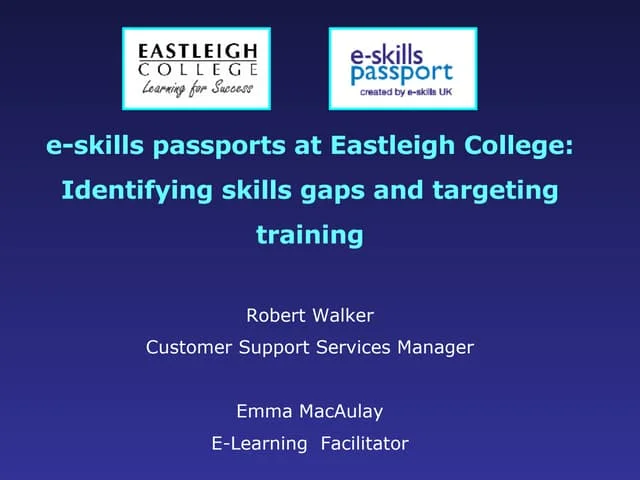In today’s fast-moving digital world, staying ahead in your career requires more than just keeping up with the latest technology. You need a structured way to track your existing abilities, identify knowledge gaps, and plan for professional growth. That’s where an online skills management system comes in. Whether you’re an individual professional, a student, or a training manager, these platforms make skill development measurable, manageable, and more effective.
What Is an Online Skills Management System?
An online skills management system (sometimes called a skills passport) is a digital platform that helps individuals and organisations:
-
Record current skills and qualifications
-
Assess skill levels through tests or self-evaluation
-
Identify skill gaps compared to industry standards or desired roles
-
Build personal development plans with learning milestones
-
Track progress over time
Essentially, it’s like having a career roadmap in one central place, guiding both individuals and teams toward continuous improvement.
Key Benefits
1. For Individuals
-
Clarity: Understand exactly where your strengths and weaknesses lie.
-
Goal-setting: Plan qualifications or certifications that match your career goals.
-
Evidence: Provide proof of skills and development for employers.
-
Motivation: See visible progress in your learning journey.
2. For Organisations and Training Managers
-
Workforce insight: Identify collective strengths and weaknesses.
-
Strategic planning: Align team skills with business objectives.
-
Cost efficiency: Invest in training only where it’s needed.
-
Performance improvement: Build stronger, more capable teams.
How It Works
Most online skills management systems follow a simple but powerful process:
-
Register skills – Users record current abilities and qualifications.
-
Assess levels – Through quizzes, peer review, or manager evaluation.
-
Generate gap analysis – The system highlights areas needing improvement.
-
Create an improvement plan – Users or managers set timelines and learning paths.
-
Track progress – Skills are re-evaluated regularly to measure growth.
This structured cycle ensures learning isn’t random, but targeted and effective.
Choosing the Right Skills Management System
If you’re considering adopting a system, look for features such as:
-
User-friendly interface
-
Comprehensive skills database (especially for IT and technology fields)
-
Options for both self-assessment and external assessment
-
Integration with e-learning platforms
-
Reporting and analytics tools
Conclusion
An online skills management system is more than just a digital tool—it’s a career accelerator. By providing structure, evidence, and continuous feedback, it helps individuals grow confidently while enabling organisations to build strong, future-ready teams.
If you haven’t started tracking your skills yet, now is the perfect time. A small step today can lead to significant career advancement tomorrow.

